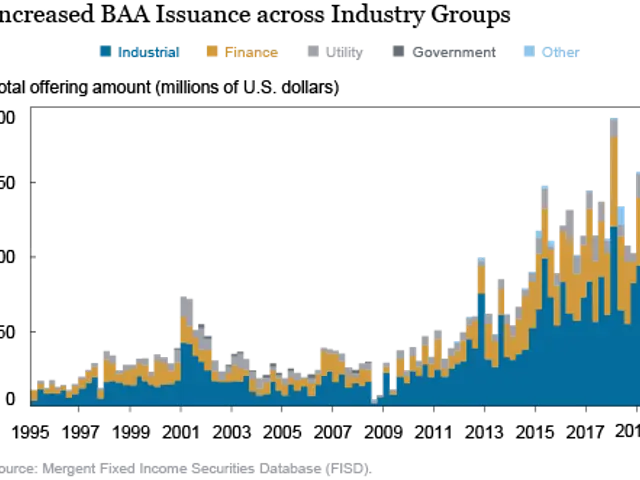Dynamics of Competition: An Explanation
The world economy is witnessing a fierce competition among nations, as they strive to improve their competitiveness and secure economic dominance. This race is not limited to any region, with countries such as Germany, the European Union, the United States, and China leading the charge.
The International Monetary Fund (IMF) has emphasised that global trade is not a zero-sum game. Instead, increasing productivity worldwide through specialisation can benefit everyone. This perspective is shared by countries worldwide, including Germany, which aims to enhance its competitiveness.
However, the path to competitiveness is not without challenges. More than one in three German companies reported a lack of orders in July, indicating a persistent order shortage that remains a major obstacle to a substantial economic recovery. The German industry is struggling with structural disadvantages, such as high energy prices, regulation, and investment conditions.
The US government, too, is focusing on improving competitiveness as a strategy to boost economic growth and military strength. Trillions of new debts are being financed for military armament, with the expectation that growth will materialize to avoid a new debt crisis. The US is also working on developing a national innovation strategy to maintain and strengthen global leadership in foundational technologies like AI, quantum physics, biotechnology, semiconductors, robotics, and hypersonic technology.
Meanwhile, the European Union, under the leadership of Commission President Ursula von der Leyen, is aiming to be leaders in climate-friendly industries, technologies, and financing. This strategic move is crucial, as the economies of the EU and the USA were roughly the same size 16 years ago, but the US economy now produces 80% more than the European one.
This economic disparity has far-reaching consequences for Europe, as it may lead to geopolitical disappearance without economic growth. To prevent this, determined reforms are needed to prevent the German industry from falling further behind in global competition.
The intensifying struggle for a share in global growth is evident in the overcapacities in many industries, leading to price wars, such as in the automotive industry. The Chinese market, once a significant economic driver for the West, including Germany, is no longer playing this role.
Chancellor Friedrich Merz has demanded that Germany return to the top economically. Currently, countries working most intensively on improving their competitiveness to secure economic dominance include the European Union (with major investments in decarbonization, infrastructure, and defense, notably Germany), the United States (though with some fiscal tightening), and China (strengthening its domestic market), as well as other Asian economies focused on innovation and growth. Germany, in particular, is pursuing modernization and growth investments despite challenges in some key industries.
The IMF also notes that if the productivity of another country increases, it does not necessarily mean that one's own country becomes less competitive. Global trade increases productivity worldwide, and everyone can potentially benefit from it. Therefore, the race for economic dominance is not about survival of the fittest, but about collaboration and mutual growth for a prosperous and competitive world.








